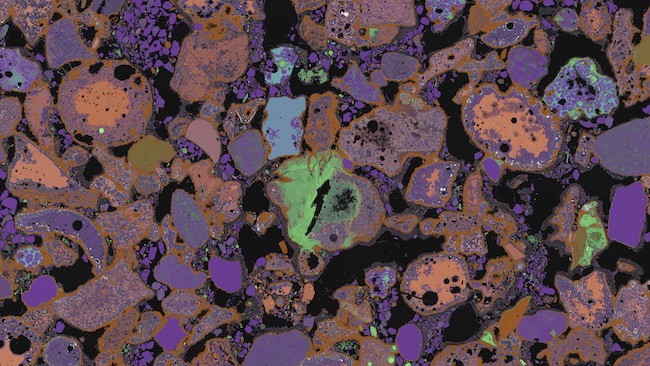Industrial waste can turn into rock in as little as 35 years, new research reveals, instead of the thousands or millions of years previously assumed. The finding challenges what scientists know about rock formation, revealing an entirely new “anthropoclastic rock cycle.”
The scientists found that waste from seaside industrial plants turns into rock especially rapidly due to the ocean water and air, which activate minerals such as calcium and magnesium in the waste, or slag, cementing it together faster than natural sediments, according to a statement.
“For a couple of hundred years, we’ve understood the rock cycle as a natural process that takes thousands to millions of years,” Amanda Owen, a senior lecturer in sedimentology at the University of Glasgow in Scotland and lead author of the new research, said in the statement. “What’s remarkable here is that we’ve found these human-made materials being incorporated into natural systems and becoming lithifield — essentially turning into rock — over the course of decades instead.”
Researchers dubbed this newly discovered process the “rapid anthropoclastic rock cycle.” The findings challenge long-standing theories about how rocks form and suggest industries have far less time to dispose of their waste properly than previously thought, Owen said in the statement. The research was published April 10 in the journal Geology.
Researchers discovered the first clues of turbo slag-to-rock transformation on Derwent Howe, a giant pile of waste from now-closed iron and steelmaking plants on the northwest coast of England. The scientists noticed irregular formations in these slag “cliffs,” prompting them to take a closer look, according to the statement.
Related: Humans have long been a ‘geophysical force on a planetary scale,’ says philosopher Timothy Morton. That’s neither good nor bad.
The team analyzed samples from 13 sites along Derwent Howe with electron microscopy, X-ray diffraction and Raman spectroscopy which revealed that the slag contained deposits of calcium, iron, magnesium and manganese. These chemically active elements help to make natural cements such as calcite, goethite and brucite — accelerating the process that binds minerals together to form rocks, according to the statement.

One sample contained aluminum from a beverage can that helped the researchers estimate how long it takes for slag to lithify. “We found both a King George V coin from 1934 and an aluminium can tab with a design that we realised couldn’t have been manufactured before 1989 embedded in the material,” study co-author John MacDonald, a senior lecturer in anthropogenic geomaterials at the University of Glasgow, said in the statement.
For the can tab to become encased in rock, the slag must have solidified and lithified in the past 35 years. It’s possible that these processes finished earlier, so 35 years is the maximum time it takes to turn slag into rock, MacDonald said.
“This is an example in microcosm of how all the activity we’re undertaking at the Earth’s surface will eventually end up in the geological record as rock, but this process is happening with remarkable, unprecedented speed,” he said.
Scientists have previously made similar observations on the coast of Spain in the Gorrondatxe area, the researchers noted in the study, but those observations didn’t come with a time frame.
“I think it’s very likely that this same phenomenon is happening at any similar slag deposit along a relatively exposed coastline with some wave action,” study co-author David Brown, a senior lecturer in volcanology and sedimentology at the University of Glasgow, said in the statement.


1 Comment
fxnnte